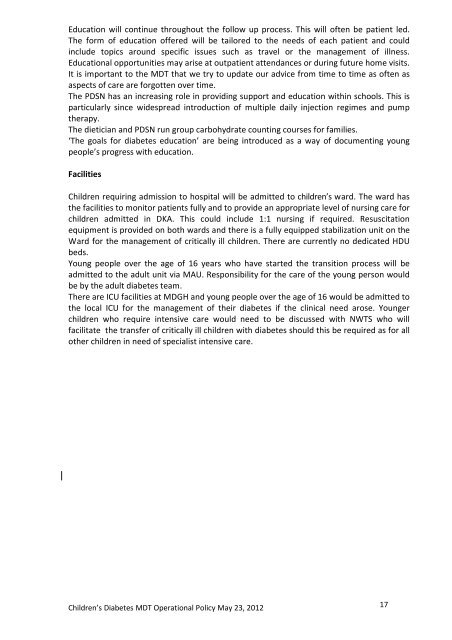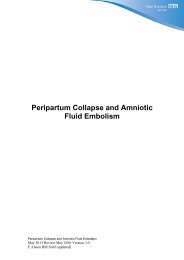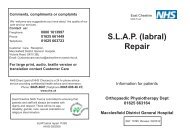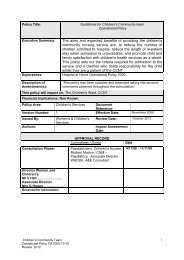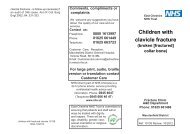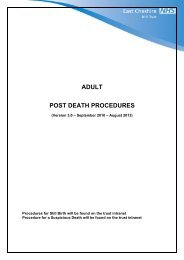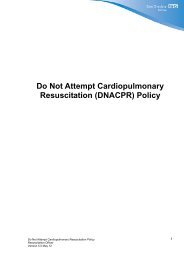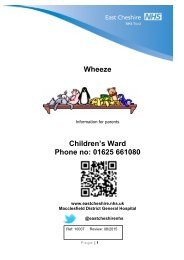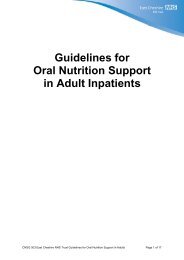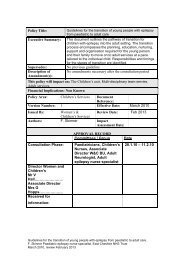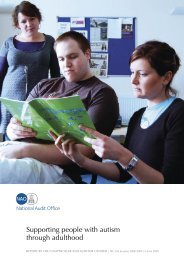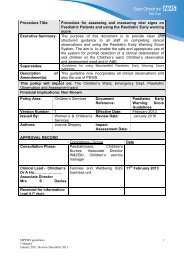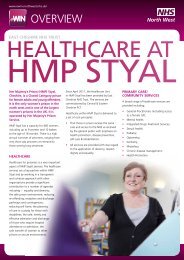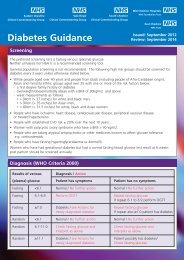Paediatric diabetes operational 1745.pdf - East Cheshire NHS Trust
Paediatric diabetes operational 1745.pdf - East Cheshire NHS Trust
Paediatric diabetes operational 1745.pdf - East Cheshire NHS Trust
Create successful ePaper yourself
Turn your PDF publications into a flip-book with our unique Google optimized e-Paper software.
Education will continue throughout the follow up process. This will often be patient led.The form of education offered will be tailored to the needs of each patient and couldinclude topics around specific issues such as travel or the management of illness.Educational opportunities may arise at outpatient attendances or during future home visits.It is important to the MDT that we try to update our advice from time to time as often asaspects of care are forgotten over time.The PDSN has an increasing role in providing support and education within schools. This isparticularly since widespread introduction of multiple daily injection regimes and pumptherapy.The dietician and PDSN run group carbohydrate counting courses for families.‘The goals for <strong>diabetes</strong> education’ are being introduced as a way of documenting youngpeople’s progress with education.FacilitiesChildren requiring admission to hospital will be admitted to children’s ward. The ward hasthe facilities to monitor patients fully and to provide an appropriate level of nursing care forchildren admitted in DKA. This could include 1:1 nursing if required. Resuscitationequipment is provided on both wards and there is a fully equipped stabilization unit on theWard for the management of critically ill children. There are currently no dedicated HDUbeds.Young people over the age of 16 years who have started the transition process will beadmitted to the adult unit via MAU. Responsibility for the care of the young person wouldbe by the adult <strong>diabetes</strong> team.There are ICU facilities at MDGH and young people over the age of 16 would be admitted tothe local ICU for the management of their <strong>diabetes</strong> if the clinical need arose. Youngerchildren who require intensive care would need to be discussed with NWTS who willfacilitate the transfer of critically ill children with <strong>diabetes</strong> should this be required as for allother children in need of specialist intensive care.Children’s Diabetes MDT Operational Policy May 23, 2012 17


